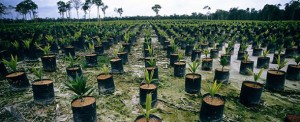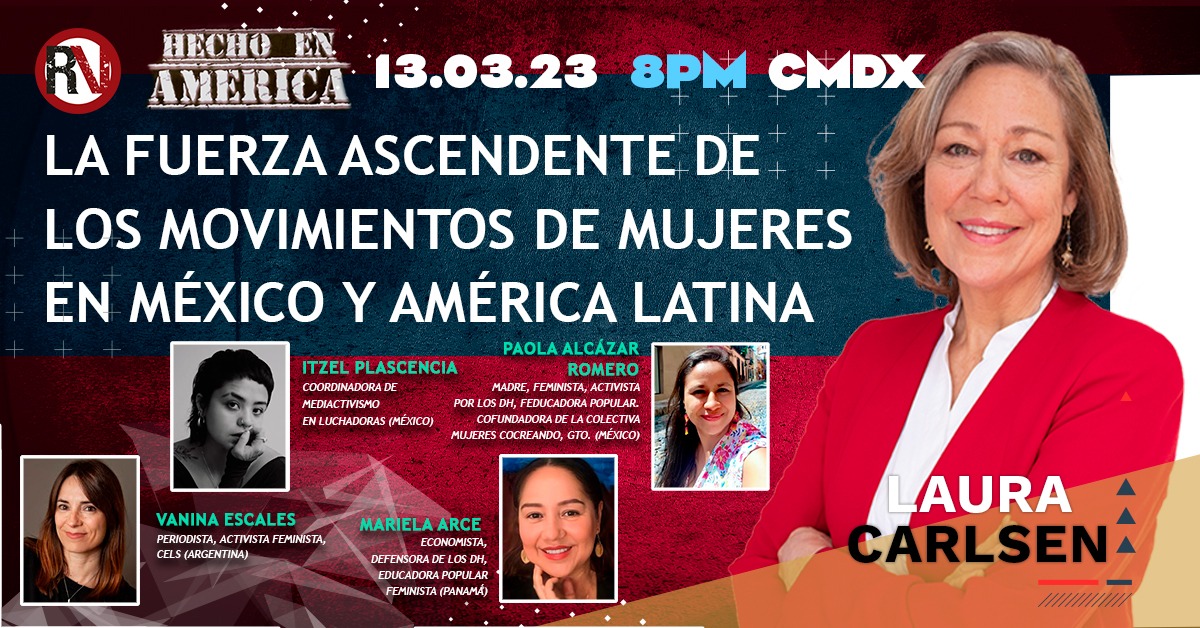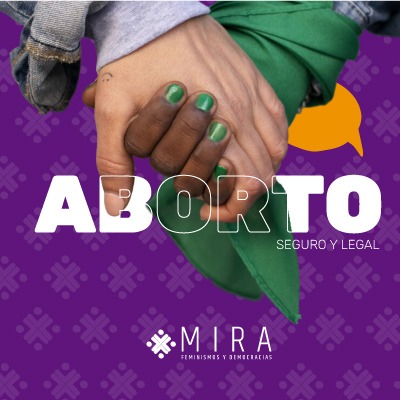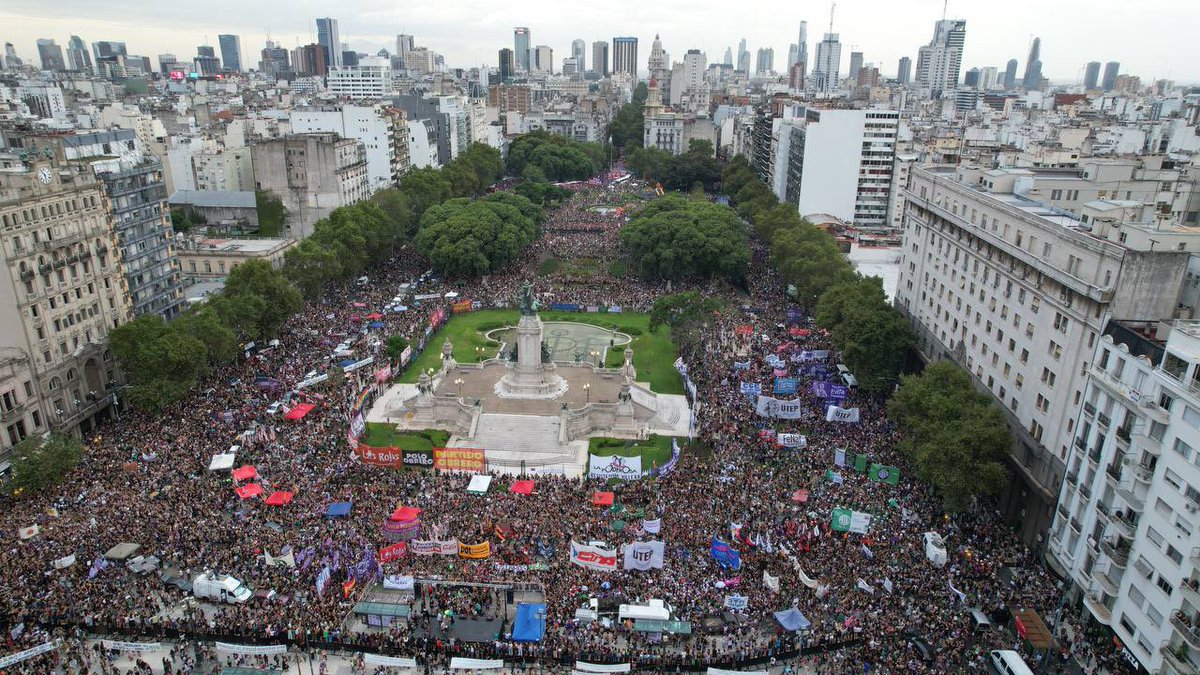
1. COLOMBIA AND HONDURAS: The Violence of the Palm Oil Tree
ufeffMonocultures of African, or oil palm, whose oil is used to produce a variety of products ranging from cosmetics to biodiesel, bring massive violence and destruction of biodiversity, as the cases of Colombia and Honduras demonstrate. “Violence is an additive to African palm oil or biodiesel,” stated the labor organization Rel-UITA. “Environmental degradation, repression of indigenous and campesino communities, and union-busting are some of the footprints that mark the violent identity of the industrial cultivation of the African palm.”
Recently 185 of the 200 workers at the palm plantation Palo Alto in Colombia chose to join a union, and were crushed by the bullets of mercenaries. “They opened fire with their faces uncovered, brazenly defiant with the arrogance of those who know that in Colombia impunity nourishes the use of weapons and that it’s open season on union members all year long.” In 2009, 37 union leaders were assassinated in Colombia. That year, seven of every 10 union members murdered in the world were Colombians.
Workers’ demands include payment of salaries, bonuses, severance pay, interest on severance pay, family subsidies, and seven years’ worth of social security premiums.
“These modern slaves earn an average of (U.S.) $230 dollars, some $30 below the minimum salary. According to the Central Unitaria de Trabajadores, a labor federation, in Colombia you need two minimum salaries to keep a family from dying of hunger,” Rel-UITA charged. “It is very difficult to understand how in these feudal work conditions which are accompanied, in addition, by extreme violence, the development of the African Palm would favor progress for people or their quality of life, as President Alvaro Uribe says it will. The only thing the African palm delivers in Colombia and the rest of the world from the top down is violence and poverty.”
“There is no crop which has displaced more campesinos in Colombia than the African palm. It is the ‘napalm’ of Plan Colombia: burning the forest, torching the people ceaselessly, and with full legitimization … Uribe wants Colombia to be ‘the Saudi Arabia of biodiesel’ in 2020. We can imagine it: a huge desert, an oligarchic monarchy, and a multimillion dollar marketing operation calling for the use of Colombian ‘bio-combustibles’ to save the planet.”
There is a similar situation in the Bajo Aguán region of Honduras, where a violent agrarian conflict has erupted in an African palm plantation of over 50,000 acres. The constitutional ex-president, Manuel Zelaya, had tried to resolve the conflict by legislative decree and negotiations among campesino organizations, the business owners, and the National Agricultural Institute.
But the coup in 2009 put an end to the negotiations. The Unified Campesino Movement of the Aguán (MUCA) took over the struggle at that point in order to recover the land usurped by the business owners who had participated in the overthrow of Zelaya.
“With the solid support of the Resistance, MUCA members began the recovery of these (50,000 acres) and [as a consequence] became victims of three violent evictions by the army and the police which left a number of them wounded,” Rel-UITA reported. “In spite of the systematic repression, MUCA continued firm in its defense of their rights to the land in conflict, at the same time denouncing the continuing violation of the labor rights of the workers in the African palm plantations and the conditions of extreme poverty in which the population of the area lives.”
Monocultures replace tropical forests or other ecosystems, resulting in serious deforestation which in turn brings loss of biodiversity, flooding, increasing droughts, soil erosion, the consequent contamination of water sources, and the appearance of pests caused by the disruption of ecological equilibrium and changes in the food chain; furthermore monocultures put the conservation of water, soil, flora, and fauna in jeopardy,” an international declaration against African palm monocultures states in a document endorsed by over 250 civil society organizations world-wide. “The degradation of the forest diminishes its functions in climate matters and its disappearance affects humanity as a whole.”
At present, world-wide, deforestation is the second biggest cause of the growing levels of carbon dioxide in the atmosphere. The expansion of oil palm monocultures has come at the cost of the degradation and burning of the peat bogs as well as of deforestation.
SOURCES:
Gerardo Iglesias—Rel-UITA, “Palma africana y derechos humanos: el agua y el aceite,” February 11, 2010, http://www.rel-uita.org/sindicatos/palo_alto/el_agua_y_el_aceite.htm.
Giorgio Trucci, “Palma ensangrentada,” February 12, 2010, http://www.rel-uita.org/agricultura/palma_ensangrentada.htm.
Salva la Selva, Declaración internacional en contra del “maquillaje verde” de los monocultivos de la Mesa Redonda de Aceite de Palma Sostenible, October 13, 2008, http://www.salvalaselva.org/news.php?id=1067.
For more information:
http://carmeloruiz.blogspot.com/search/label/RSPO
2. PUERTO RICO: The Transgenic Caribbean
 |
| Puerto Rico is an important platform for transgenic seeds. |
Since the 1980s Puerto Rico has been for the biotechnology industry an important platform for experimentation with and propagation of its genetically modified (GM or transgenic) seeds. These research and development activities are on the verge of increasing substantially in scale, according to an article published in the local daily, El Nuevo Dia, on February 7, 2010. According to the article,
“Saúl Rosado, president of the Puerto Rico Seed Research Association, confirmed that in order to meet the growing demand for seeds, the subsidiaries of American and European multinationals are in the process of expanding their operations … Manuel Pérez, chief of the Maize Project of Monsanto Caribe confirmed that that company also had plans to expand on the island.”
At present there are nine seed companies on the island, all members of the PR Seed Research Association. These include Monsanto, Syngenta, Pioneer, Dow Agroscience, and Bayer Cropscience. These companies have about 5,736 acres sown in maize, soy, sorghum, sunflowers, cotton, and other crops in the municipalities of Lajas, Sabana Grande, Juana Díaz, Santa Iabel, Salinas, Guyama, Isabela, and Aguadilla. The great majority of GM crops world-wide consist of maize, soy, and cotton.
The U.S.-based Monsanto, the largest seed company in the world and which controls 90% of the world GM seed market, has been in Puerto Rico under the name Monsanto Caribe since 1983, according to the Monsanto Puerto Rico web page. In the town of Juana Díaz, on the south coast of the island, the company has over 2,000 acres planted with soy, maize, cotton, and sorghum.
Monsanto Caribe has offices and over 325 acres planted in the municipality of Isabela, on the northwest part of the island on the south side of Highway 2. On the other side of the highway there is a University of Puerto Rico (UPR) experimental substation where a transgenic yucca for use in Africa is being developed with funding from the Bill & Melinda Gates Foundation. This yucca is being genetically altered to increase its Vitamin A, iron, zinc, and protein content.
Dimuth Siritunga, professor at the Mayagüez UPR campus (RUM), is in charge of this project. He also directs the Gates Foundation’s Biocassava Plus program. This program aims to increase the nutritional properties of manioc in Africa by means of both conventional plant breeding and transgenic biotechnology. The RUM is one of eleven institutions participating in Biocassava Plus, the principal being the Danforth Plant Science Center (DPSC), a non-profit institution located in the U.S. city of St. Louis. This center was founded in 1998 with a grant from the Monsanto Fund. Monsanto CEO Hugh Grant, is on the DPSC’s board of directors.
“It seems safe enough to call Danforth Monsanto’s not-for-profit research wing,” says reporter Tom Philpott of the environmental online journal Grist.
SOURCES:
Aura Alfaro, “Crean ‘superyuca’ en Mayagüez,” El Nuevo Día, February 28, 2010.
Aura Alfaro, “Germina la innovación,” El Nuevo Día, February 7, 2010.
Biocassava Plus, http://biocassavaplus.org/.
Danforth Plant Science Center, http://www.danforthcenter.org/.
Monsanto Puerto Rico, http://www.monsanto.pr/nuestra_empresa/historia/monsanto_puertorico.asp.
Tom Philpott, “USDA Research Chief Concerned About ‘Safety of Organic Food’,” Grist Magazine, March 2, 2010, http://www.grist.org/article/usda-research-chief-concerned-about-safety-of-organic-food.
For more information:
http://bioseguridad.blogspot.com/search/label/Puerto%20Rico
3. MEXICO: GM Supporters and Foes Both Converge in Guadalajara
 |
| Many are unhappy with the role of the FAO. |
In the first week of March the Mexican city of Guadalajara hosted the FAO (UN Food and Agriculture Organization) Conference on Agricultural Biotechnologies in Developing Countries. The conference was billed as a purely technical event, an objective and neutral affair, for the purpose of evaluating technological options for agriculture in order to face the challenges of hunger and climate change. But indigenous, campesino, and civil society sectors in Mexico and many other countries denounced it as having been an attempt to promote GM crops.
“The documents which FAO coordinated for the conference did not address fundamental questions about biotechnology, such as the domination of the entire sector by transnational businesses,” asserted Silvia Ribeiro of the ETC Group. “They also ignored the impossible-to-ignore results of the use of agricultural biotechnology: the transgenic contamination of campesino varieties, the increase in the use of toxic agrochemicals on these crops (which worsens climate change), and other impacts on the environment and on consumer health.”
“If the FAO had really wanted to have a discussion of options, it would not have organized a biased conference; one without the participation of the key actors, and one rejecting critical points of view. At this point, what the FAO has done is to condone the appropriation of the planet’s seeds and food chain by a few transnational GM seed producers, something which will only aggravate hunger and climate chaos.
In response to the FAO conference, dozens of organizations from inside and outside of Mexico organized an alternative parallel conference called “GM Crops Rob Us of Our Future.”
“That the FAO decided to meet in Mexico with government and private sector representatives under the banner of the false argument that ‘biotechnology can benefit campesinos of poor countries’ is an act of aggression, show of disrespect, and we take it as an affront,” declared the international organization Vía Campesina, a participant in the parallel event.
“They use the word ‘biotechnology,’ which is broad and vague, when we all know that what they really mean to do is promote GM crops, which have never benefited and never will benefit campesino families,” said Vía Campesina. “It is a major act of aggression and a provocation directed against the Mexican pueblo and campesino and indigenous pueblos throughout the entire world to come to Mexico to promote GM crops. It is in Mexico itself that we have fought so hard to try to stop the contamination of our ancestral corn with transgenic pollen, which threatens the center of origin and the center of the biodiversity of this extremely important crop that provides food for our culture and for all humanity.”
“GM crops don’t bring benefits: only high costs and destruction which will fall on the shoulders of campesinos and indigenous people and on humanity in general,” declared the Chilean Camila Montecinos, of the organization GRAIN. “These businesses seek to impose themselves on us in order to maximize their profits and their control over food. They are not concerned about the criminal damage their crops cause. The complicity of governments, research centers, and international organizations is also criminal, since it facilitates and aggravates these dangers. For these reasons, it is urgent that pueblos (peoples) organize to defend their food supply and their environment.”
In spite of the bleak and adverse outlook which confronts them with regard to the advance of GM, the participants at the meeting placed their bets on an optimistic outcome and on the alternatives which food sovereignty and campesino (peasant) agro-ecological production offer. “Food sovereignty based on sustainable campesino agriculture will save us from the cycles [caused by] speculation and free trade and will reduce impacts on the climate,” affirmed Vía Campesina. “Our wise ancestors and agro-ecological principles are wholesome, while an increasing number of scientific studies show the multitude of risks for human health which GM crops represent.”
“To sow our fields with our native maize, and to defend it, is an act of resistance, an act of rebellion against an unfair system. But it is also an act of hope. Hope because we know that food sovereignty from sustainable indigenous and campesino agriculture is where the solutions to the crisis lie, and these seeds of rebellion which we sow are also the seeds of another, better world that we seek.”
SOURCES:
Camila Montecinos, “Desenmascarando las mentiras de los transgénicos,” http://www.biodiversidadla.org/Principal/Contenido/Documentos/Desenmascarando_las_mentiras_de_los_transgenicos.
Silvia Ribeiro, “FAO y transgénicos: Apuesta equivocada,” La Jornada, February 27, 2010, http://www.jornada.unam.mx/2010/02/27/index.php?section=opinion&article=021a1eco.
Via Campesina, “Es una agresión de parte de la FAO reunirse en México para promover transgénicos,” March 1, 2010, http://www.biodiversidadla.org/Principal/Contenido/Noticias/Es_una_agresion_
de_parte_de_la_FAO_reunirse_en_Mexico_para_promover_los_transgenicos.
For more information:
http://bioseguridad.blogspot.com/search/label/FAO
4. BOLIVIA: Environmental Contradictions of “21st Century Socialism”
 |
| President Evo Morales. |
The re-election of socialist President Evo Morales with an overwhelming 65% of the popular vote, together with the recent victories of progressive candidates to the presidencies of Paraguay and Uruguay, has caused rejoicing and hope among ecologists the world over. It is hoped that these progressive governments will lead South America away from the road of the ecologically destructive model of development based on extractivism, the exportation of raw materials such as minerals and agricultural commodities.
This development model became even more destructive with the ascent of neoliberal economics and has its most prominent expression in the Initiative for the Integration of the Regional Infrastructure of South America (IIRSA). On its official web page, IIRSA describes itself as “a forum for dialogue among the authorities responsible for transportation, energy, and communication infrastructures in the 12 countries of South America.” It says its goal is “to promote development of infrastructure with a regional vision, resulting in the physical integration of the countries of South America and the achievement of an equitable and sustainable pattern of territorial development.” This initiative, which has funding from the Inter-American Development Bank (IADB), aims to construct massive transportation and energy infrastructure projects, which will have an enormous impact on biodiversity as well as serious implications for climate change.
But unfortunately, according to concerned and observant ecologists, the progressive governments of the continent have shown themselves to be more of the same when it comes to care of the environment.
“In Bolivia, various hydroelectric dam building projects have been launched, which is especially worrisome, not only because of their number, but also because some of them are located in the Amazon, including in protected areas,” warns Uruguayan ecologist and intellectual Eduardo Gudynas.
“In effect, the MAS (Movement Toward Socialism) government plan proposed involves the construction of dams, like those of Cachuela Eperanza, Río Grande, and Bala, with the goal of selling energy to neighboring countries. It also intends to complete the Madeira River hydro dam complex. It is defending oil exploration and exploitation, which has already caused various local groups to react, as can be seen in the indigenous Mosetén’s declarations against PetroAndina. In addition to these activities, we have to include the projects for expanding mining, their associated deforestation, and the use of coal (for example in El Mutún). The social and environmental impacts of all these projects should be enormous, and inside Bolivia we will need to be continuously alert.”
According to the Bolivian environmental group FOBOMADE, the IIRSA megaprojects have been designed and financed by the World Bank, the IADB, and the Andean Development Corporation (Corporación Andina de Fomento) “to facilitate the exploitation and export of raw materials. The IIRSA was born to be the backbone of free trade in South America and is now one of the pillars of the development plans of Evo Morales and other ‘progressive’ governments.”
A number of environmentalists predict that these contradictions will come to a climax at the World People’s Conference on Climate Change and the Rights of Mother Earth which President Morales is convening in April in the city of Cochabamba. “The problem is that this has caused harsh responses from the Bolivian government,” warns Gudynas. “It is important to keep this problem in mind analyzing the call to Cochabamba. How can the ‘pueblos’ discuss global climate change if the people’s government [of Bolivia] rejects environmental warnings? Some government leaders have come to support the idea that the participation and consultation of citizens ought to be regulated so that they don’t hinder mining and hydrocarbon projects … many environmentalists could demand that Pacha Mama be defended even within Bolivia.”
“How do we apply the formulas for industrialization and sustained economic growth considered necessary for a poor and backward country without causing hideous damage and the irreversible distortions of the old ‘real socialism’ or of the new Chinese model, ideologically indefinable but ecologically devastating?” asks Ojarasca, the monthly supplement of the Mexican daily La Jornada in an editorial about the crossroads which the government of Evo Morales faces.
The Ojarasca editorial asks other pertinent questions as well: “How is Brazil to be prevented from constructing two hydroelectric megadams on the Madeira river? These megadams will cause the flooding of enormous territories of Bolivia and harm to the national ecosystem and agriculture. How to block the petroleum concessions in Lake Titicaca, concessions which the Peruvian government is awarding wholesale to transnational companies? These concessions ignore the biosphere of the lake, which is subject to regulation, shared by Peru and Bolivia and administered by a bi-national authority. How is the melting of the glaciers in the Andes to be stopped? These glaciers constitute the biggest reserve of potable water in the region and are a vital source of water for the Amazon.”
“Without doubt, the call to this international conference is welcome,” said Gudynas. “It will serve to disseminate many concerns and proposals addressing climate change, but it will also have the power to promote internal reflection within citizens’ organizations about the political directions for leadership in regard to environmental issues.”
SOURCES:
FOBOMADE, “La comunidad de estados latinoamericanos y caribeños expandirá los biocombustibles y expandirá la IIRSA,” February 26, 2010, http://fobomade.org.bo/bsena/?p=129#more-129.
Eduardo Gudynas, “Una necesaria reflexión acerca del encuentro sobre cambio climático en Bolivia,” February 22, 2010, http://accionyreaccion.com/?p=216.
IIRSA official page, http://www.iirsa.org/.
Ojarasca, “La defensa de Pacha Mama y las contradicciones del cambio,” February 2010, http://www.jornada.unam.mx/2010/02/20/oja154-pachamama.html.
For more information:
http://carmeloruiz.blogspot.com/search/label/IIRSA
Carmelo Ruiz Marrero is an independent environmental journalist and environmental analyst for the Americas Program (americasprogram.org), a fellow at the Oakland Institute and a senior fellow at the Environmental Leadership Program, as well as founder and director of the Biosafety Project of Puerto Rico (bioseguridad.blogspot.com). His bilingual web page (carmeloruiz.blogspot.com) is devoted to global environmental and development issues.
Translated for the Americas Program by Barbara Belejack.
For More Information
Americas Program Biodiversity Report—February 2010
http://americas.irc-online.org/am/6689
Biodiversity Report CIP Americas Program, January 2010
http://americas.irc-online.org/am/6678
Biodiversity Report CIP Americas Program, December 2009
http://americas.irc-online.org/am/6659



